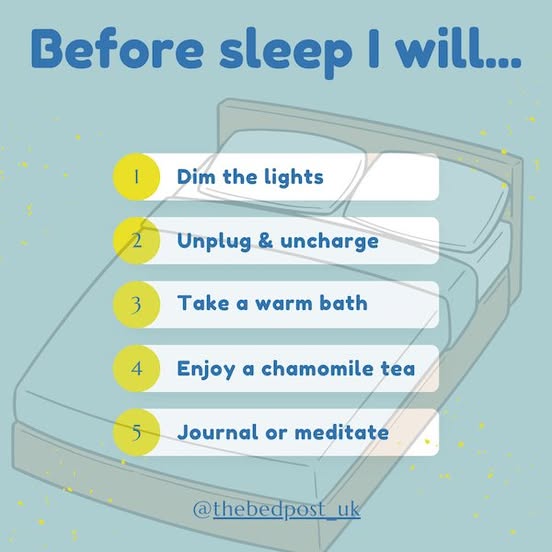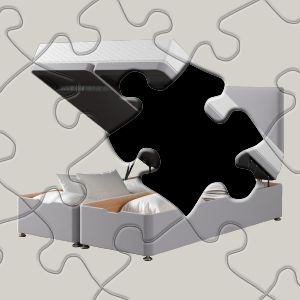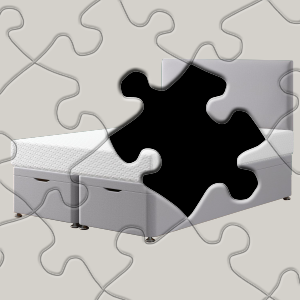10th Feb 2025
7 Essential Steps to Create the Perfect Bedtime Routine for Better Sleep
A restful night's sleep is essential for our well-being, influencing everything from mental acuity to emotional balance. Establishing a calming evening routine can significantly improve the quality of your sleep. Here’s a guide to creating a bedtime ritual that nurtures relaxation and prepares you for a night of sweet dreams.

1. Dim the Lights - Begin your bedtime ritual by dimming the lights around your home. Lower lighting levels signal to your brain that the day is ending and it's time to reduce activity and prepare for sleep. This helps regulate your body’s natural circadian rhythms, enhancing your ability to fall asleep more quickly and enjoy deeper sleep.
2. Unplug from Electronics - An hour before bedtime, disconnect from all electronic devices, including smartphones, laptops, and television. The blue light emitted by screens can interfere with the production of melatonin, the hormone responsible for regulating sleep. Instead, engage in relaxing activities that require less stimulation, such as reading a physical book or listening to a gentle podcast.
3. Take a Warm Bath - Soaking in a warm bath can help relax your muscles and lower your body temperature, cues that help signal to your body it's time to sleep. Adding elements like Epsom salts or soothing oils such as lavender can enhance this effect, making your transition to sleep even smoother.
4. Drink Chamomile Tea - Enjoy a cup of chamomile tea as part of your nightly routine. Chamomile is known for its calming properties, which can reduce anxiety and prepare your body for sleep. Avoid beverages with caffeine or sugar late in the evening as they can disrupt your sleep cycle.
5. Use Lavender Oil - Incorporate the use of lavender essential oil into your nighttime routine by using a diffuser in your bedroom. Lavender has been shown to decrease heart rate and blood pressure, potentially putting you in a more relaxed state.
6. Journal or Meditate - Spend a few minutes journaling or meditating to clear your mind of the day’s stresses. Writing down your thoughts can help declutter your mind and ease anxiety, while meditation techniques like deep breathing can help reduce stress and induce sleepiness.
7. Establish Consistency - Consistency is key to reinforcing your body’s sleep-wake cycle. Try to perform these steps at the same time every evening. This predictability helps strengthen the association between these activities and sleep, making it easier to wind down each night.
Crafting a bedtime routine is a personal process that can involve trial and adjustment. What works for one person might not work for another, so feel free to adapt these suggestions to suit your preferences. By consistently practicing these steps, you’ll create an environment and a ritual that signal to your body that it’s time to rest, leading to improved sleep quality and greater overall health. What’s your favorite part of your nighttime routine? Let us know and find your path to better sleep tonight.
2. Unplug from Electronics - An hour before bedtime, disconnect from all electronic devices, including smartphones, laptops, and television. The blue light emitted by screens can interfere with the production of melatonin, the hormone responsible for regulating sleep. Instead, engage in relaxing activities that require less stimulation, such as reading a physical book or listening to a gentle podcast.
3. Take a Warm Bath - Soaking in a warm bath can help relax your muscles and lower your body temperature, cues that help signal to your body it's time to sleep. Adding elements like Epsom salts or soothing oils such as lavender can enhance this effect, making your transition to sleep even smoother.
4. Drink Chamomile Tea - Enjoy a cup of chamomile tea as part of your nightly routine. Chamomile is known for its calming properties, which can reduce anxiety and prepare your body for sleep. Avoid beverages with caffeine or sugar late in the evening as they can disrupt your sleep cycle.
5. Use Lavender Oil - Incorporate the use of lavender essential oil into your nighttime routine by using a diffuser in your bedroom. Lavender has been shown to decrease heart rate and blood pressure, potentially putting you in a more relaxed state.
6. Journal or Meditate - Spend a few minutes journaling or meditating to clear your mind of the day’s stresses. Writing down your thoughts can help declutter your mind and ease anxiety, while meditation techniques like deep breathing can help reduce stress and induce sleepiness.
7. Establish Consistency - Consistency is key to reinforcing your body’s sleep-wake cycle. Try to perform these steps at the same time every evening. This predictability helps strengthen the association between these activities and sleep, making it easier to wind down each night.
Crafting a bedtime routine is a personal process that can involve trial and adjustment. What works for one person might not work for another, so feel free to adapt these suggestions to suit your preferences. By consistently practicing these steps, you’ll create an environment and a ritual that signal to your body that it’s time to rest, leading to improved sleep quality and greater overall health. What’s your favorite part of your nighttime routine? Let us know and find your path to better sleep tonight.


















